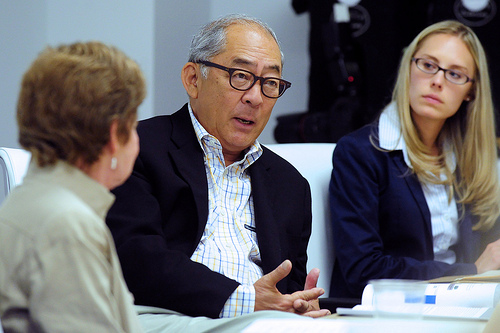Job Hunting after 50 is like starting all over again except that now you might have too much experience. And you may be working for someone the age of your children.
Why would someone do this?
Often it’s not a personal choice. Its chosen for us.
“I was forced to retire in a recent reorg of our company.”
“My company recently restructured, and my position is no longer needed.”
“I didn’t save enough money for retirement, and now I’m forced to go back to work to make ends meet.”
There are a variety of reasons people hit the job market after age 50. It’s harder than it was when you were in your 20s, 30’s or even 40s for a number of reasons, harder but completely doable.
Where do you even begin?
Job Hunting After 50: 5 Tips to Be Successful
1. Build a resume that sells
Your resume is your first impression. First impressions are critical for you to advance to the next stage of the hiring process. If your resume doesn’t sell you, you won’t get a chance to sell yourself in person. So writing a resume that sells is of utmost importance when starting the job hunt. Steven Lindner of The WorkPlace Group in Florham Park, New Jersey, recently conducted a study of 1,000 similar resumes. He determined that “the top predictor of candidates selected for an interview were those with the most relevant, current and continual work experience.”Lindner also said it’s best to focus on the past ten years of relevant experience versus listing every job you’ve ever had.
Tips for building a resume that sells YOU for successful job hunting:
- Hire a professional if possible. Your resume is the first impression a future employer has of you. It can make or break your opportunity for a foot in the door. You should strongly consider investing in a professional resume writer to help you. It’s not just enough to dust off the resume you used in your last job search. The format of resumes has changed, and you need to be current not only in highlighting your work experience but also in formatting that information. If your resume looks dated, you will look dated and less desirable to potential employers.
- Collect information about the company you want to work for and be sure to tailor your resume work experience to their needs.
- Highlight the last ten years of relevant work experience and combine the previous year’s experience into broad categories.
- Use current industry terminology. Delete all old terminology from your resume, so you don’t date yourself and appear irrelevant.
2. Build your network
If you have decades of work experience, you should have an extensive network of contacts as well. Professional networking is critical to your career success, and personal networking is crucial to your personal success during this significant life transition.
- Professional – According to research conducted by LinkedIn ” 70 percent of people in 2016 were hired at a company where they had a connection.” It also showed that 35% of surveyed professionals said that a casual conversation on LinkedIn Messaging led to a new opportunity. Building and maintaining your network takes an investment of time that can pay high dividends in return when you really need it.
- Personal – You don’t have to do this alone. Make sure you have a personal support system to encourage you on those days when it feels like nothing is coming together. It’s the hardest when you can’t see the results of all of your efforts. Having someone there to remind you that things are working in the background will help you to stay grounded and moving forward.
Tips for building a network that supports your job hunting goals:
- Become active on LinkedIn. Engage in conversations and share interesting articles. Look for ways to promote others and help them achieve their career goals. People are more likely to think of you then the next time they hear of an opportunity that would be an excellent fit for you.
- Socialize more in your current clubs or group activities. Let people know you’re in the job market so that the next time they hear of an opportunity, they will pass along your name.
- Find cheerleaders. Be real with those closest to you and let them know you need them and their support. Be open and honest with your struggles, and how they can best help you. Likewise, make sure you’re also supportive of them in whatever needs they have as well. Remember it’s always a two-way street.
3. Stay current on the latest industry trends
Have you taken the time to educate yourself on the latest trends in your industry? Are you conversant in relevant trending topics that are important to a potential employer? When comparing older candidates with younger candidates, it’s assumed that the younger candidate is current on industry trends. It’s not assumed that the older candidate is. You need to demonstrate that you are relevant, current, and conversant on what’s happening in the marketplace today.
Tips for staying current while job hunting:
- Be relevant – Stay current on trends in your industry. Familiarize yourself with the latest technologies and the implications of such for the future of your industry. Communicate how you can play an integral part in keeping a potential employer competitive with your experience and skill-set. You need to show both on paper and in conversation that you are not only relevant, you’re a game-changer for their success.
- Continuing education – Show that you’re still learning. Be well-read and tech-savvy. Engage in online conversations around relevant industry topics. Take classes. Participate in webinars and attend seminars. Continuing education gives you a competitive advantage, and it’s also another great way to network.
- Change your expectations where needed. Your new employer will likely operate differently than your former employer on many levels. You may have to take a pay cut. You may have to make sacrifices in other areas, especially if you were with your former company for an extended period. Change your expectations to match those of the current workplace. Let go of what you think it should be like, and be willing to embrace what it is.
4. Be interview ready at all times
You never know where you’re next job lead will come from. It might be at a football game, an evening out with friends, or even standing in line at a check-out counter at the grocery. Be ready at all times to share your potential value for a future employer.
Tips for being interview ready at all times while job hunting:
- In three sentences or less, describe your work experience and your skill-set. Also called an elevator speech, communicate succinctly what you want someone to remember about you; no more, no less. And remember to practice, practice, practice, so this feels very conversational and natural.
- Know the type of work you want to do, and the kind of company you want to join. Don’t expect other people to hear your elevator speech and suggest the perfect company for you. Know what you want so you can laser your job hunting efforts towards that specific end.
- Be prepared to dispell the myths and stereotypes associated with being over 50. Focus on your relevant skills and work experience when sharing about yourself. Make your years of experience a positive differentiator showing that you have personal expertise handling situations that a younger competitor hasn’t had yet.
5. Do Your Research
You can’t wait for future employers to come to you, you must put yourself out there and find them. Your research should include items such as who’s hiring, the standard salary range, the corporate culture, and if you will have the opportunity to do valuable work.
Tips for doing research while job hunting:
- Find out who’s hiring. There are a variety of ways to find out who’s hiring and where you should apply. You can use job search engines, social media, LinkedIn, Glassdoor, and of course your vast network. Interestingly, there are a few companies that have signed a pledge to hire people over 50. Check them out and the options that fit your skillset.
- Determine the best jobs for your skillset. Perhaps you haven’t considered all the options you have. Don’t limit yourself. Do some self-exploration and skillset assessment to discover new roles you haven’t thought of yet.
Bonus tip:
Be patient. To find the right fit for you will take some time. It takes time to fill your funnel with job leads and network connections. Once that pump is primed, things will begin happening. Hang in there! Job hunting after 50 isn’t for the faint of heart, but it’s doable, and you will come out on top.
This article was originally published on Kaylene Writes





Be the first to comment on "Job Hunting after 50: 5 Tips to Be Successful in Your Job Search."